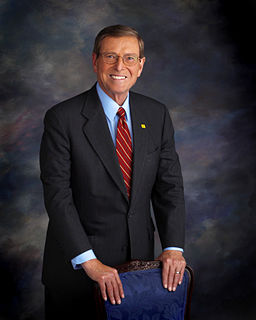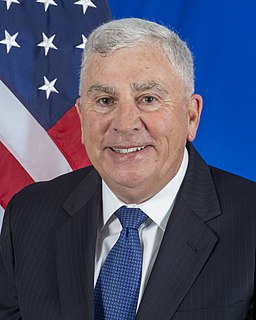A Quote by H. R. McMaster
Although combat operations unseated the Taliban and the Saddam Hussein regime, a poor understanding of the recent histories of the Afghan and Iraqi peoples undermined efforts to consolidate early battlefield gains into lasting security.
Related Quotes
But we have achieved at least two important things. Afghanistan is no longer a safe haven for international terrorists. We have a strong Afghan army, which is fighting the terrorists and Taliban. And the second thing is that they are able to do that without us being there to conduct the combat operations.
And we remember the end of our combat mission and the emergence of a new dawn - the precision of our efforts against al Qaeda in Iraq, the professionalism of the training of Iraqi security forces, and the steady drawdown of our forces. In handing over responsibility to the Iraqis, you preserved the gains of the last four years and made this day possible.
I think when I close my eyes what I think is 4,500 days or so, 4,250 I guess days, was long enough to give Iraq to come into compliance with the international order. And I think to myself how many Iraqi citizens died under the brutal regime of Saddam Hussein during those 4,200 odd days, and I think to myself how many more citizens of how many nations, the United States, Israel, or any other neighbor would die if Saddam Hussein went unchecked, though I am just grieved by the sacrifice of our brave men and women, but I think ultimately the greater good is served.
Even before September 11, there was a debate in the administration about whether or not military force should be used to oust Saddam Hussein. You're not going to find one person in the top echelons of the foreign policy and national security establishment in the U.S. government who's going to say that Saddam Hussein should not be out of power.
The draconian prohibitions of the Taliban years and the gains Afghan women have achieved since the Taliban government was overthrown in 2001 are now well known and often cited: Today, Afghans lucky enough to live in secure regions can go to school, women may work in offices, and the burqa is no longer mandatory.



































